 Michigan Cities Day
|
Saving Communities
|
||||||
Home |
Site Map |
Index
|
New Pages |
Contacts |
Michigan Cities Day
at the joint conference of the
Council of Georgist Organizations (North America) and
The International Union for Land Value Taxation (all other continents)
Wednesday, August 5, Hilton
Embassy Suites, Southfield, Michigan
Times to be announced
The full conference runs from the evening of Tuesday, August 4
through lunch on Sunday, August 9, with speakers from around the world,
speaking on issues related to land monopoly and taxation. Michigan
Cities Day focuses on local issues related to blight, transportation
and water delivery, and should be of interest to Michigan community
leaders.
Featuring:
Marie Donigan:
 Marie Donigan is a Project Consultant to the Metro
Coalition of Congregations for the Harriet Tubman Center, a proposal
and grant writer and a frequent columnist, panelist and public speaker.
She conceived, organized and implemented the successful Metro Detroit
Transit Workshop at University of Detroit, Mercy, and managed the
Collaboration and Shared Services Study for Van Buren County
municipalities.
Marie Donigan is a Project Consultant to the Metro
Coalition of Congregations for the Harriet Tubman Center, a proposal
and grant writer and a frequent columnist, panelist and public speaker.
She conceived, organized and implemented the successful Metro Detroit
Transit Workshop at University of Detroit, Mercy, and managed the
Collaboration and Shared Services Study for Van Buren County
municipalities.
She served three terms in the Michigan House of Representatives where
she chaired the Subcommittee on Public Transit and the
Intergovernmental and Regional Affairs Committee, championing
legislation to establish a Regional Transit Authority for Southeast
Michigan. Before that, she spent twenty years in local government as a
Royal Oak City Commissioner and a staff member with the Farmington
Hills Department of Planning and Community Development. With Farmington
Hills she wrote and implemented more than a $1 million of federal and
state grants and designed innovative streetscapes and landscapes for
parks and public roads. She has a Masters of Landscape Architecture and
Regional Planning from the University of Pennsylvania.
Articles:
"Donigan's Plan Will Stimulate Economy, Increase Public Transit" (PDF) 008 press release on using tax increment financing to cover transit costs and to capture some of the higher property values through property taxes.
"Fix a Road, Finance a Rapid Transit System," praises Donigan's work to help win bipartisan support for rapid transit funding in Michigan.
Videos:
Ms. Donigan introduces the Metro Detroit
Transit Workshop at the University of Detroit, Mercy (29:32). (She
speaks from 7:40 to 14:15.)
A libertarian
video featuring opponents of Ms. Donigan's metro transit plan (5:47)
Mason Gaffney:
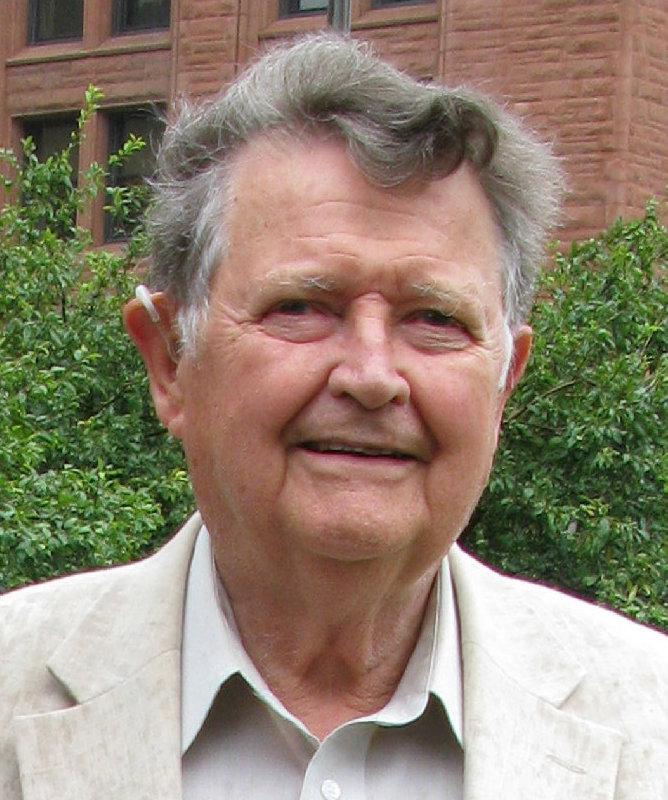 A professor of Economics at the University of California,
Riverside since 1976, Mason Gaffney is an American economist and a
major critic of neoclassical economics from a Georgist (classical
progressive) point of view. Gaffney has been an economic consultant and
journalist for Time, Inc.; a researcher with Resources for the Future;
the head of the British Columbia Institute for Economic Policy
Analysis, which he founded; an economic consultant to several
businesses and government agencies; and a frequent speaker on economic
topics, domestic and foreign, and in political campaigns. He has been a
Director of the Robert Schalkenbach Foundation since 1988. His
specialty is land economics, particularly with regard to urban blight,
natural resources, irrigation and forestry.
A professor of Economics at the University of California,
Riverside since 1976, Mason Gaffney is an American economist and a
major critic of neoclassical economics from a Georgist (classical
progressive) point of view. Gaffney has been an economic consultant and
journalist for Time, Inc.; a researcher with Resources for the Future;
the head of the British Columbia Institute for Economic Policy
Analysis, which he founded; an economic consultant to several
businesses and government agencies; and a frequent speaker on economic
topics, domestic and foreign, and in political campaigns. He has been a
Director of the Robert Schalkenbach Foundation since 1988. His
specialty is land economics, particularly with regard to urban blight,
natural resources, irrigation and forestry.
Mason Gaffney's published papers include:
How
a Progressive Tax System Made Detroit a Powerhouse - Why Detroit
bounced back from its first economic collapse, and why it failed to
bounce back from its recent collapse, in Dollars and Sense.
"How to revive a dying city.", 2001, (Originally "The Role of Ground Rent in Urban Decay and Revival." Distinguished Papers No 89-F-1, November 1989, Business Research Institute, St. John's University).
"New Life in Old Cities", Georgist Policies and Population Growth in New York City, San Francisco, Chicago, Cleveland, Toledo, Detroit, Milwaukee, Pittsburgh, and Other Cities, 1890-1930," Robert Schalkenbach Foundation, 2006.
"Policies
and Practices Affecting Urban Land Costs as an Element of Housing
Costs." Arlington, Va: The Institute for Defense Analyses, A Report
to U.S. Department of HUD, 1968, pp. 1-59 + v.
"Land Planning and the Property Tax" AIP Journal, May 1969, 178-183.
"A
Tax Tool for Meeting Urban Fiscal Crisis." AJES 29(3):253-58 (July
1968).
Thirty-Eight of his published papers are online at: http://www.masongaffney.org/publications.html
Videos with Mason Gaffney:
My Greedy Generation -How we overtax workers and undertax land speculators. (7:44)
Soaking
Nature: the Palm Springs Scam - How we give scarce water for free
to rich communities at taxpayer expense. (5:15)
Dodgy
Economics - Why neoclassical economists missed the causes of the
recession and are still ignoring the most important factors.
(11:07, Gaffney begins at 4:20)
Ted Gwartney:
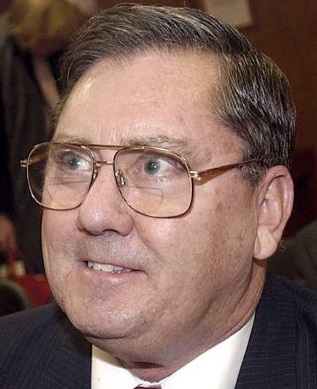 Ted Gwartney has been the chief assessor of Greenwich,
Bridgeport and Hartford Connecticut, has made nineteen trips to Russia
to consult on land valuation where there had been no land market, was
the deputy county assessor of Sacramento, California, and the Chief
Executive Officer of the British Columbia Assessment Authority, where
he implemented a system to annually reassess 1.5 million land parcels.
However, he got his start as the assessor of Southfield, Michigan under
the Georgist mayor James Clarkson. Gwartney corrected the
under-assessment of land, making it more expensive for speculators to
hold land idle. This change was followed by economic growth for
Southfield, which today has more prime office space than Detroit. He
has also been a professor of law and real estate appraisal at Baruch
College, president of the American Journal of Economics and Sociology,
treasurer of the Institute for the Study of Long-Term Economic Trends,
and director of the Land and Public Welfare Foundation in Russia.
Ted Gwartney has been the chief assessor of Greenwich,
Bridgeport and Hartford Connecticut, has made nineteen trips to Russia
to consult on land valuation where there had been no land market, was
the deputy county assessor of Sacramento, California, and the Chief
Executive Officer of the British Columbia Assessment Authority, where
he implemented a system to annually reassess 1.5 million land parcels.
However, he got his start as the assessor of Southfield, Michigan under
the Georgist mayor James Clarkson. Gwartney corrected the
under-assessment of land, making it more expensive for speculators to
hold land idle. This change was followed by economic growth for
Southfield, which today has more prime office space than Detroit. He
has also been a professor of law and real estate appraisal at Baruch
College, president of the American Journal of Economics and Sociology,
treasurer of the Institute for the Study of Long-Term Economic Trends,
and director of the Land and Public Welfare Foundation in Russia.
Ted Gwartney papers:
"Estimating Land Values" a detailed overview of the principles underlying the assessment of land.
"Land Assessment for Socializing Land Rent while Untaxing Production" Paper for the 2014 World Bank Conference on Land and Poverty.
"Land Rents as a Sustainable Revenue Base for China," Xiamen University.
"$190M estate received huge tax reductions" News story quoting Gwartney on a bad real estate law he had to implement.
"A Free Market Strategy to Reduce Sprawl" How tax policies subsidize under-use of urban land and drive development outward.
Videos with Ted Gwartney:
Samantha Harkins
 Director of
Michigan Municipal League Foundation. She joined the Municipal
League in
February of 2008 as a Legislative Associate. In 2011, she was
honored in the Inside Michigan
Politics Lobbyist Survey by being ranked in the top 20 for Individual Lobbyist as well as
ranked number 2 in the Individual Single Interest Lobbyist category. In
late 2013, she was on Crain’s
Detroit Business List of "People in Politics to Watch in 2014."
Director of
Michigan Municipal League Foundation. She joined the Municipal
League in
February of 2008 as a Legislative Associate. In 2011, she was
honored in the Inside Michigan
Politics Lobbyist Survey by being ranked in the top 20 for Individual Lobbyist as well as
ranked number 2 in the Individual Single Interest Lobbyist category. In
late 2013, she was on Crain’s
Detroit Business List of "People in Politics to Watch in 2014."
Prior to working with the Municipal League, Samantha was director of
government relations for
the Detroit Regional Chamber of Commerce, and served as a member of the
House Republican Policy Staff. She also worked as the executive
assistant to the Mayor of Norfolk, Virginia before moving to
Michigan. She has a B.A. and law degree from West Virginia
University in Morgantown, WV.
Articles:
"Michigan Municipal League Supports Land Value Taxation Legislation," in support of State Representative Andy Schor's bills to allow for land value taxation in zones, similar to enterprize zones.
Maureen Taylor
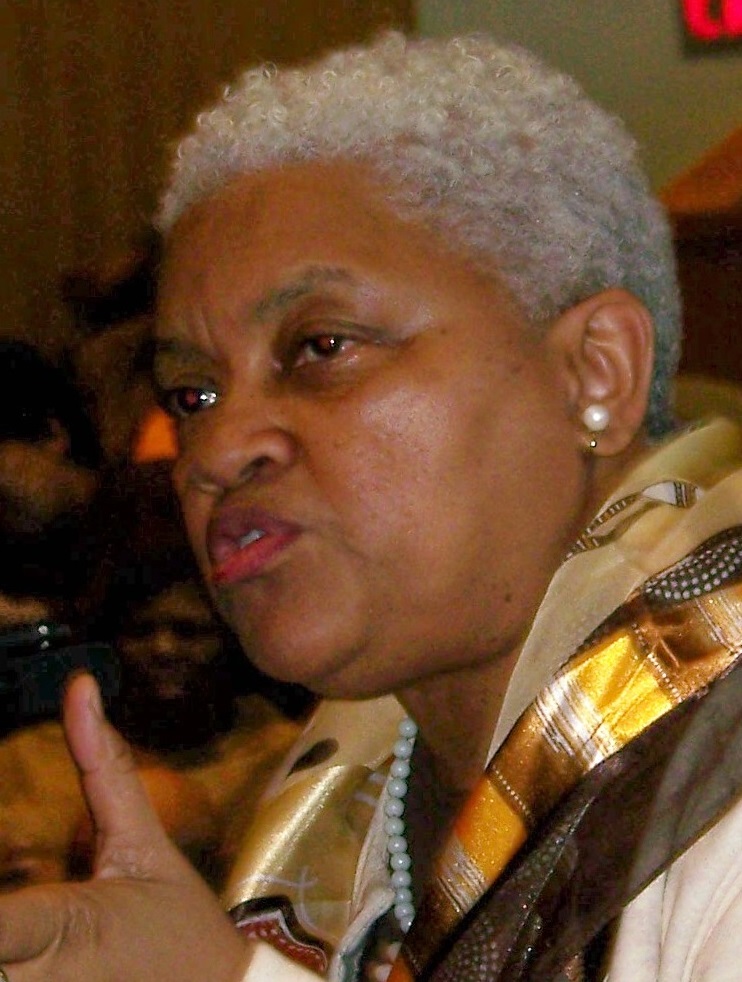 Chair of the Michigan Welfare Rights Organization since
1993, and was elected Treasurer of the National Welfare Rights Union in
1994, Maureen Taylor represents public assistance recipients at the
Michigan Family Independence Agency (FIA) offices over case disputes,
conducts local and state FIA policy trainings, and works with political
leaders and corporations to draft policies and procedures that protect
poor and low-income families. Over the past few months, has been
working with other concerned citizens to stop water, gas, and
electricity shut-offs for thousands of low-income households in
Detroit, and restore winter utilities for those already shut-off.
Chair of the Michigan Welfare Rights Organization since
1993, and was elected Treasurer of the National Welfare Rights Union in
1994, Maureen Taylor represents public assistance recipients at the
Michigan Family Independence Agency (FIA) offices over case disputes,
conducts local and state FIA policy trainings, and works with political
leaders and corporations to draft policies and procedures that protect
poor and low-income families. Over the past few months, has been
working with other concerned citizens to stop water, gas, and
electricity shut-offs for thousands of low-income households in
Detroit, and restore winter utilities for those already shut-off.
Maureen was valedictorian of the 1983 graduating class at Marygrove College and earned her Master of Social Work degree from Wayne State University in 1994.
Videos:
Speech
at Detroit Parent Network's 2011 Parent Leadership Conference ties
unemployment to automation.
Speech in support of Reverend Edward Pinkney, who had been charged ith voter fraud while fighting against the corporate takeover of the Detroit lakefront area.
Interview
on Detroit Water Cutoffs in which she argues that Detroit is being
preyed upon by banks and corporations.
The Evergreen State College Tacoma Campus Lyceum on January 18,
2011, (1:11:54)
David Triggs:
Specialist in the design, construction, operation and management of water, sanitation, and environmental systems, working throughout the UK, Yemen, Bangladesh, Malawi, Kenya, South Africa and vrious places around the world for over 40 years, with a focus on reconciling sound infrastructue with water affordability. Davidis perhaps best known for on his work on improving sanitary conditions on the Ganges river in India. His work on water affordability and access rights to water as part of the commons is tied to his interest in the works of Henry George, and led him to the Henry George Foundation of Great Britain, where he now serves as chairman.
Videos with David Triggs:
Water
affordability in third-world countries (17:58)
Joshua Vincent:
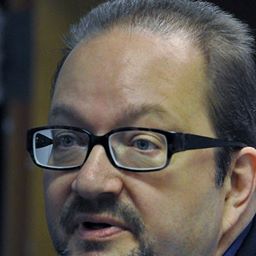 Joshua Vincent writes and lectures extensively on the
impact
of land value tax on urban economies. He has worked as a consultant to
more than 75 municipalities, countries, NGOs and national
governments. In this role, he works with tax departments and
elected officials in restructuring their taxation to a land-based
system and conducted over 50 land value impact studies for cities
across the United States since 2000. The efforts of his organization
have led to 17 Pennsylvania taxing jurisdictions, mostly cities, to
change their property tax rates to fall more heavily on land values
than on buildings and other improvements. Most home owners saved in
each jurisdiction, and each jurisdiction saw more construction and
renovation than comparable jurisdictions with conventional property tax
rates.
Joshua Vincent writes and lectures extensively on the
impact
of land value tax on urban economies. He has worked as a consultant to
more than 75 municipalities, countries, NGOs and national
governments. In this role, he works with tax departments and
elected officials in restructuring their taxation to a land-based
system and conducted over 50 land value impact studies for cities
across the United States since 2000. The efforts of his organization
have led to 17 Pennsylvania taxing jurisdictions, mostly cities, to
change their property tax rates to fall more heavily on land values
than on buildings and other improvements. Most home owners saved in
each jurisdiction, and each jurisdiction saw more construction and
renovation than comparable jurisdictions with conventional property tax
rates.
Articles about Joshua Vincent's work:
"Property: Land of Opportunity," Financial Times, How land value tax has invigorated Altoona, Pennsylvania, and its potential to stabilize real estate prices.
"Connecticut Passes Commons-Based Approach to Taxing Urban Land," On the Commons, How land value tax captures the value of infrastructure, promotes better use of land, and takes the profit out of blight, and why it was endorsed by business and environmental groups.
"Get real on Phila. realty tax," Philadelphia Inquirer, Op Ed on why failure to reassess real estate hurts the poor.
"Neighborhood Revitalization and New Life: A Land Value Taxation Approach," The American Journal of Economics and Sociology, case study on how land vaue tax is revitalizing Clairton while lowering taxes for most home owners.
Videos with Joshua Vincent:
LVT
Fishtown: How taxing buildings punishes resonsible home owners and
rewards blight in the poor Philadelphia neighborhood of Fishtown. (4:57)
Land
Value Tax: New London, Connecticut Greens, How Connecticut towns
are using land value tax, plus the rationale behind it, and the
unusually wide cross-section of supporters. (52:11)
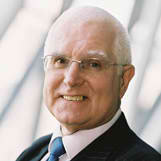 Dave Wetzel: A specialist in
transportation
economics, Wetzel has been an official at London Buses and British
Airways, editor of Civil Aviation
News, president of London University's Transport Studies
Society, director of a transport charity for the disabled, a
London Borough Councillor for 12 years, chair of planning and borough
leader for four years, Greater London Councillor and Transport Chair
for five years, vice president of Transport for London (the greater
London transportation authority that integrated 16 transport operations
from docks and freight rail to infastructure for bicycling and
pedestrians.) As president of the International Union for Land Value
Taxation, Wetzel has been a policy consultant on financing public
transport for the United Nations, the Organization for Economic
Co-operation and Development and has lectured in China, Canada,
Argentina, South Africa, the United States, and across Europe. He shows
how transportation increases land values by many times the cost of the
transportation, and argues that transportation can be funded primarily
from taxes on the higher land values it generates.
Dave Wetzel: A specialist in
transportation
economics, Wetzel has been an official at London Buses and British
Airways, editor of Civil Aviation
News, president of London University's Transport Studies
Society, director of a transport charity for the disabled, a
London Borough Councillor for 12 years, chair of planning and borough
leader for four years, Greater London Councillor and Transport Chair
for five years, vice president of Transport for London (the greater
London transportation authority that integrated 16 transport operations
from docks and freight rail to infastructure for bicycling and
pedestrians.) As president of the International Union for Land Value
Taxation, Wetzel has been a policy consultant on financing public
transport for the United Nations, the Organization for Economic
Co-operation and Development and has lectured in China, Canada,
Argentina, South Africa, the United States, and across Europe. He shows
how transportation increases land values by many times the cost of the
transportation, and argues that transportation can be funded primarily
from taxes on the higher land values it generates.
Videos:
Wetzel, with a skeptic on land value tax, on BBC's The Politics Show. (5:30)
Saving Communities
631 Melwood Avenue
Pittsburgh, PA 15213
United States
412.OUR.LAND
412.687.5263
